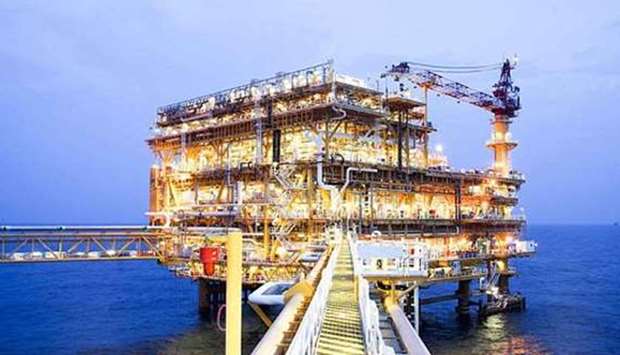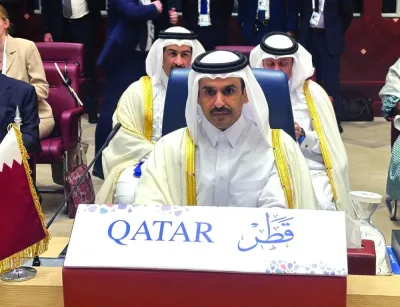Committed gas investments in the Middle East and North Africa (Mena) region for the period 2021-2025 are expected to total $75bn, Arab Petroleum Investments Corporation (Apicorp) said.
Qatar, Saudi Arabia, and Iraq are the “top three Mena countries in terms of committed gas investments”, the multilateral development financial institution said in its ‘Mena Energy Investment Outlook 2021-2025.’
Committed gas investments in Mena for the period 2021-2025 ($7bn) are $9.5bn less than the previous outlook, Apicorp said. The decline is attributed to the completion of several megaprojects in 2020 and countries being more cautious to new project commitments in an era of gas overcapacity.
Qatar, Saudi Arabia, and Iraq are the top three Mena countries in terms of committed gas investments. This is on account of Qatar’s North Field East megaproject, Saudi Arabia’s gas-to-power drive and the massive Jafurah unconventional gas development – which is poised to make the kingdom a global blue hydrogen exporter – and Iraq’s gas-to-power projects and determination to cut flaring and greenhouse gas emissions.
Planned investments meanwhile held relatively steady at $133bn for 2021-2025, signalling the region’s appetite for resuming its natural gas capacity build-up – particularly the ambitious unconventional gas developments in Saudi Arabia, UAE, Oman, and Algeria – once macro conditions improve.
Mena is also a “strong” candidate for becoming a major hydrogen-exporting region thanks to its combination of low-cost gas resources and renewable energy, Apicorp said.
A few countries, such as Saudi Arabia and Morocco, have already made headways as low-cost exporters of blue and green hydrogen, net-zero ammonia and other low-carbon products, while other countries, such as Oman, UAE, and Egypt are “attempting to catch up”, it said.
According to Apicorp, planned investments in the Mena petrochemicals sector are forecast to increase to $109bn in 2021-2025, a $14.2bn jump compared to last year’s outlook. By contrast, committed investments dipped by $7.7bn to around $12.5bn due to the completion of several megaprojects in 2020, Apicorp noted.
Despite Mena petrochemical markets seeing an overall improvement in demand owed to the increased consumption of basic materials as vaccination drives continue and economies recover, some Mena committed petrochemical investments are nonetheless being re-evaluated and rationalised due to fiscal strains, capital discipline and cost efficiencies and evolving market dynamics, Apicorp noted.
Business / Business
Qatar among top Mena countries with 5-year gas investments of $75bn up to 2025, says Apicorp

Qatar, Saudi Arabia, and Iraq are the u201ctop three Mena countries in terms of committed gas investmentsu201d, the multilateral development financial institution said in its ‘Mena Energy Investment Outlook 2021-2025.’



